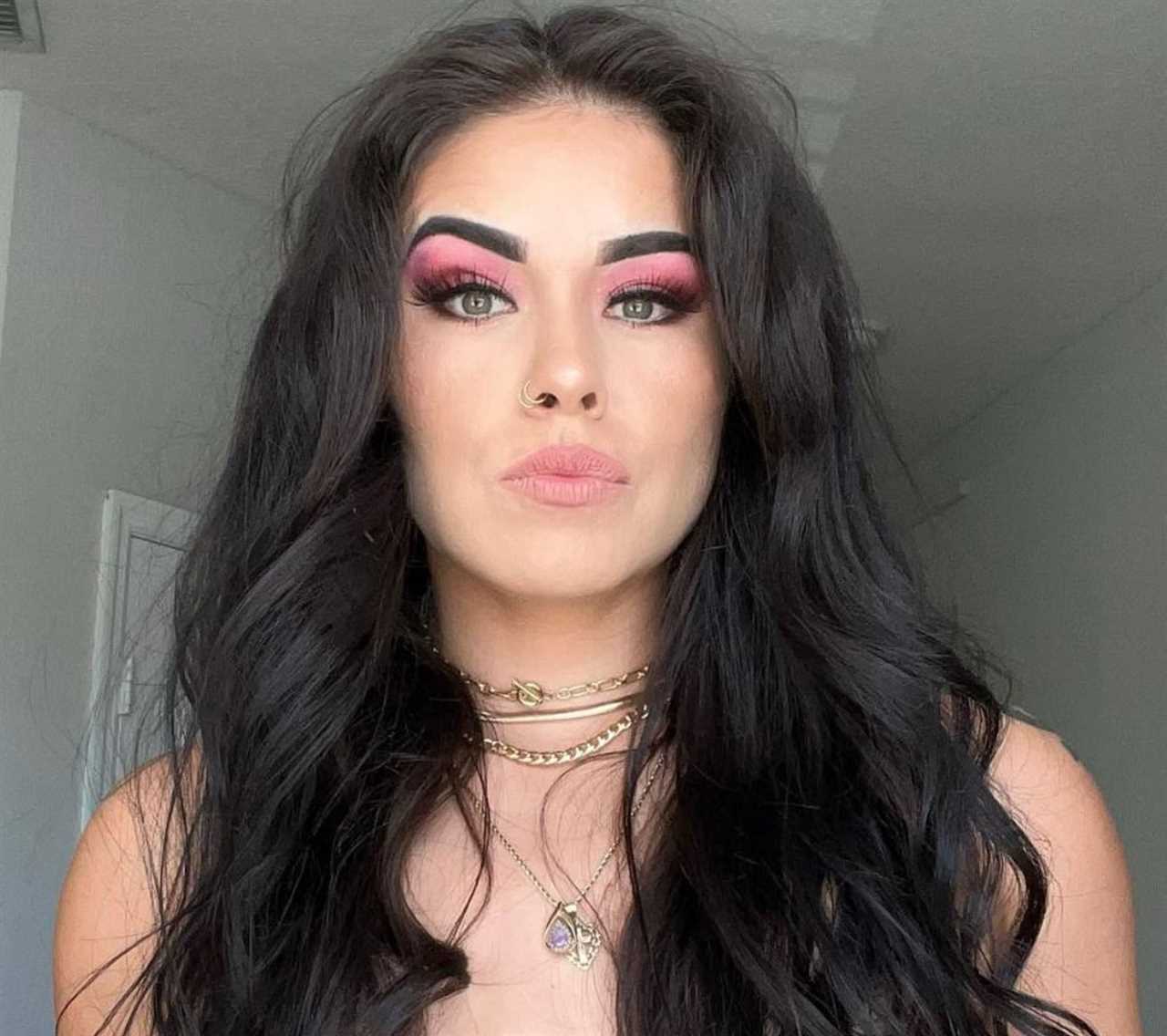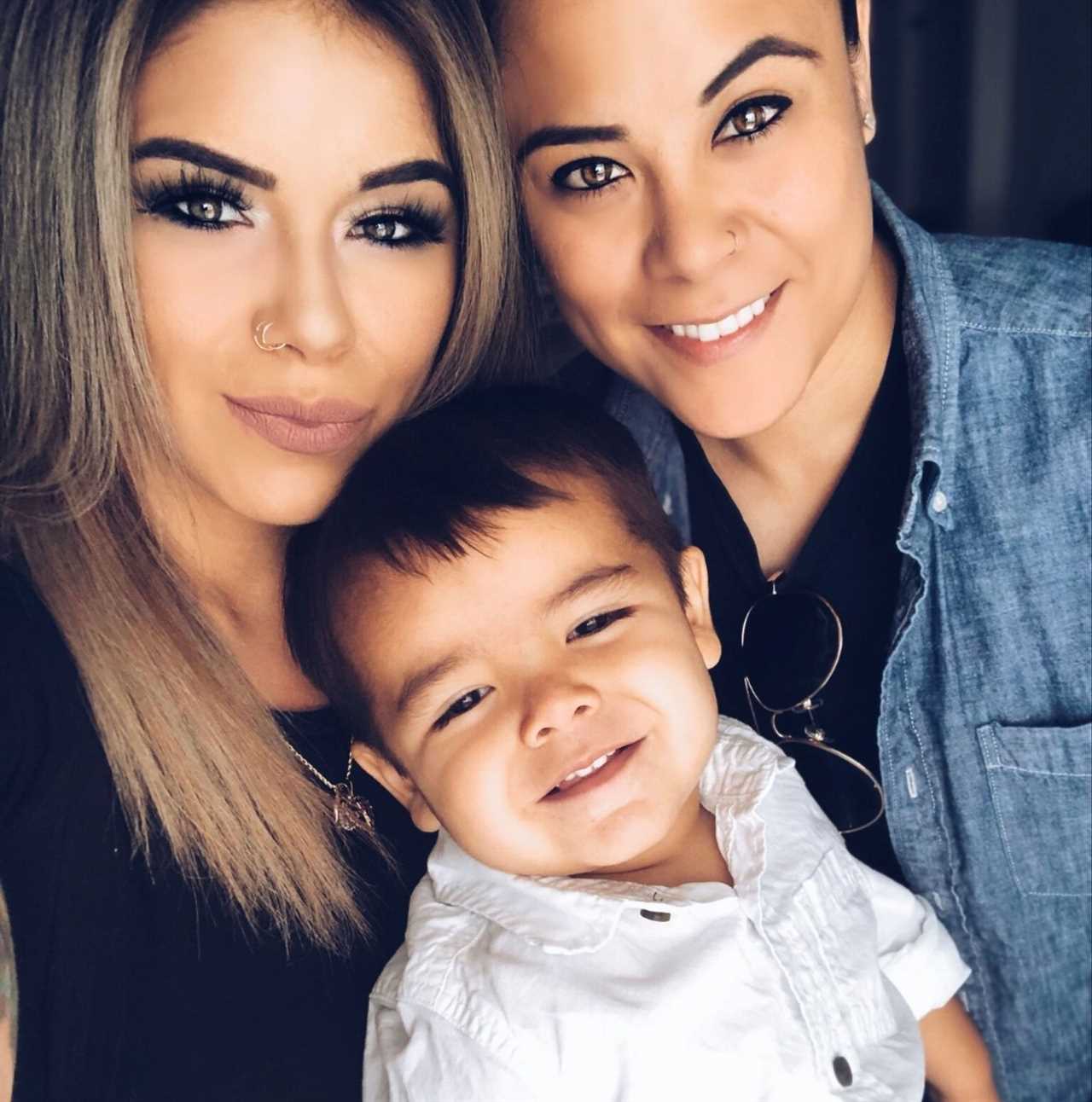A YOUNG woman is being harassed by trolls for deciding to celebrate her unique looking chest.
Stephanie Germino, now 29, has known since she was 15 that her risk of breast cancer was extremely high.

Stephanie has known since she was 15 that her risk of breast cancer was extremely high

The mum-of-one from Florida in the US decided to have double mastectomy

There are over 50,000 cases of breast cancer in women every year throughout the UK
At just 27, the mum-of-one from Florida in the US decided to have a double mastectomy leaving her as “flat as a pre-pubescent boy”.
Since her breast removal in October 2021, the mum set up accounts on Instagram and TikTok to document her journey.
Known as the @theebooblessbabe to her followers, Stephanie is trying to raise awareness of the BRCA gene.
Some trolls comment on her posts telling her to “put a shirt on” – and others assume she’s transgender.
“My surgeon warned me I would regret my decision – but told them I wanted to be ‘as flat as a pre-pubescent boy’ and I don’t regret it at all!
“When people see my chest on TikTok, lots assume I am transitioning, which I’m not.
“Others say they feel sorry for my partner or tell me no man will want me.
“The most original one is people telling me to ‘put a shirt on’ – I just say ‘no thanks, I’d rather not’.
“People can say whatever they want though – I am confident in my decision so I don’t care!”
The mum decided to have her double-D boobs removed to prevent the cancer from ever having the chance to develop.
This was after she tested positive for the BRCA1 gene – a mutation which increases the risk of breast cancer.
“I wasn’t going to wait until something actually happened to me before doing something about it.
“I didn’t want to take that risk,” the social media star explained.
At first she was tempted by the idea of free implants, as she had “always wanted implants” from a teenager.
But her partner, Diana Morgan, 35, quickly changed her mind by reminding Stephanie of the risks of further complications, she said.
Stephanie said: “It only took one conversation with my fiancé to think I think I’d look fabulous being flat.”
She also said she felt as if her breasts had already “served their purpose” after feeding her son Josiah, now six, while he was a baby.
She recalled immediately feeling “confident and badass” when she saw how her flat chest looked.
“People tell me ‘nobody wants to see this’ but then I look and find that they’re actually following my account!” Stephanie explained.
But she added: “For anyone feeling insecure, comments like I get could put them in a really bad place.
“But for me – I am so confident in my decision and my flat chest, that I just don’t care!”
According to the Centres for Disease Control, each year in the US, there are about 264,000 cases of breast cancer are diagnosed in women and about 2,400 in men.
And in the UK, there are over 50,000 cases of the disease each year, Cancer Research says.
Nearly 1,000 people die from breast cancer every month in the UK, with the disease killing around 11,500 women and 80 men each year.
How does BRCA testing work?
Doctors test for BRCA gene mutations using a blood test, which is then analysed in the genetics lab.
Tests should be offered to patients whose risk of being a carrier is 10 per cent or more, according to NHS England guidelines.
If you have a personal or family history or ovarian and/or breast cancer, you may be offered a test.
But a leading cancer research institute is calling for ALL women over the age of 30 to be tested for the faulty gene.
Researchers at Barts Cancer Institute found that nationwide testing could prevent up to 64,000 cases of breast cancer and 17,000 cases of ovarian cancer in the UK alone.
Dr Ranjit Manchanda, a consultant gynaecological oncologist at Barts Cancer Institute, told Sky News that this would save the NHS money in the long-run, as well as saving lives.






